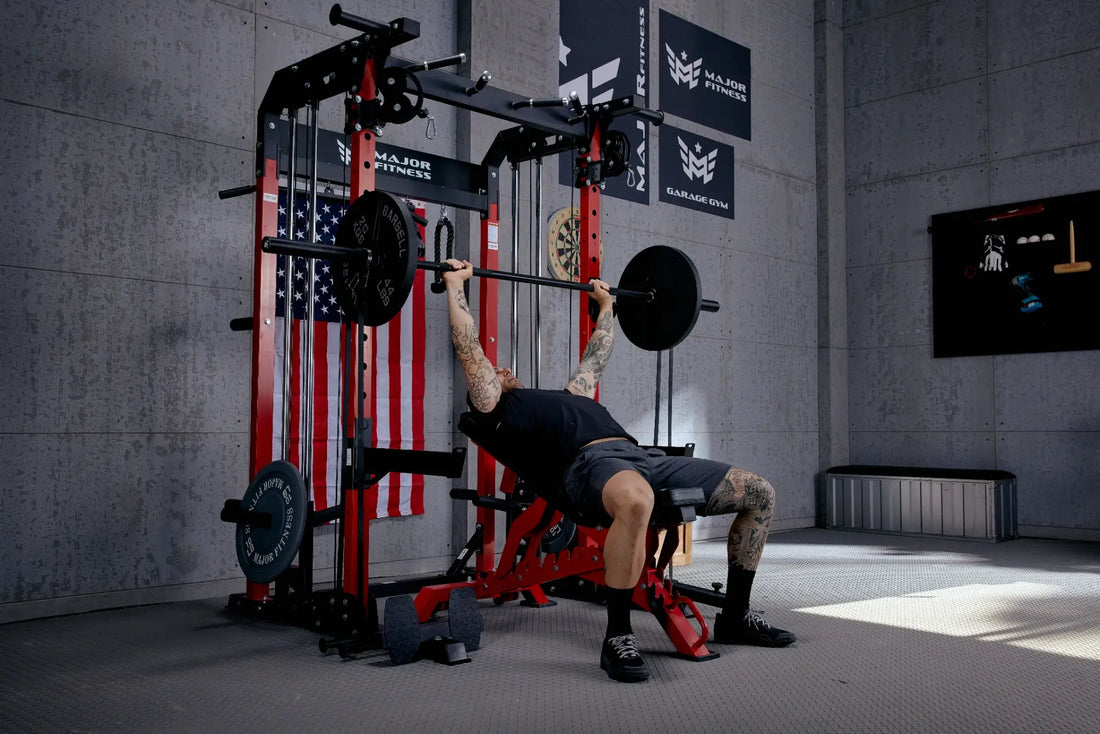
Are you struggling with the incline bench press while finding the flat and decline versions more manageable? If so, you're not alone. The question many fitness enthusiasts grapple with is: why is incline bench press harder?
In this article, we'll dig deep into the mechanics, muscle groups, and science that make the incline bench press a daunting exercise for many. From differences in muscle activation to the impact of biomechanics, we'll unravel the mystery behind this challenging workout.
The Role of Muscle Activation
The primary muscles involved in any bench press variation are the pectorals, triceps, and deltoids. However, the incline bench press shifts more of the load to the upper part of the pectoral muscles and the anterior deltoids. This altered muscle activation is one significant reason why the incline bench press tends to be harder. While the flat bench press engages a more balanced activation of the pectorals, the incline position targets the upper pecs and shoulders more intensely.
Because the upper pectoral muscles and anterior deltoids are generally less strong than the middle or lower portions of the pecs, the exercise becomes more difficult. Additionally, the smaller muscle fibers in these areas fatigue faster, adding to the challenge.
MAJOR adjustable bench meets most training requirements, its durability is beyond your imagination, if you need to equip your home gym, this is a good choice, learn more.

Biomechanics and Angles
The biomechanics involved in the incline bench press also contribute to its difficulty. The incline angle typically ranges between 30 to 45 degrees, which changes the plane of motion and requires a different recruitment pattern of muscle fibers. This angle puts extra stress on the shoulders and upper pecs, making it harder to lift the same amount of weight compared to a flat or decline bench press.
Furthermore, the bar path in an incline bench press is longer and less vertical, which makes it harder to generate the same power and stability as you would in a flat bench press. The incline angle minimizes the help you get from the lower pectoral muscles, forcing the upper pecs and deltoids to take most of the load.
Stabilization and Balance
Stabilization also plays a crucial role in the difficulty of the incline bench press. When you're in an inclined position, maintaining balance and control of the barbell becomes trickier. Your core and stabilizing muscles have to work harder to maintain proper form, and poor stabilization can lead to a failed lift or even injury.
Range of Motion
Another reason why the incline bench press is harder is due to the increased range of motion. Because of the angle, the barbell travels a longer distance before it touches your chest. This extended range of motion requires more strength and endurance, making the exercise more challenging.
Recovery and Fatigue
Your recovery process might also be influencing why the incline bench press feels harder. If you're already fatigued from previous exercises that targeted the shoulders or upper chest, you might find the incline bench press even more strenuous. Consistently underperforming in this exercise could be a sign that you need to adjust your workout schedule to allow for better recovery of the upper pectorals and deltoids.
Addressing the Challenges
So how can you improve your performance in the incline bench press? Here are a few tips:
- Strengthen your upper pectorals and shoulders: Incorporate exercises like incline dumbbell presses and shoulder presses to build strength in these areas.
- Focus on form: Ensure you're executing the exercise with proper form to maximize muscle involvement and minimize the risk of injury.
- Gradual progression: Start with lighter weights and gradually increase the load as your strength improves.
- Improve stabilization: Exercises like planks and other core workouts can help improve your ability to stabilize during the incline bench press.
- Recovery: Make sure you're giving your muscles enough time to recover between workouts targeting the same muscle groups.
Tackling the reasons why the incline bench press is harder requires a multifaceted approach involving strength training, proper form, and adequate recovery. Keep these factors in mind, and you'll start seeing improvements over time.
The next time you're struggling with the incline bench press, remember that the added difficulty isn't just a figment of your imagination. It's rooted in the complexities of muscle activation, biomechanics, and stabilization. By understanding these factors, you can make targeted adjustments to your workout regimen, turning the incline bench press from a dreaded challenge into a strength-building triumph.
Feeling inspired to conquer the incline bench press? Let's elevate your fitness journey together by mastering the mechanics and shattering those weightlifting plateaus.


















